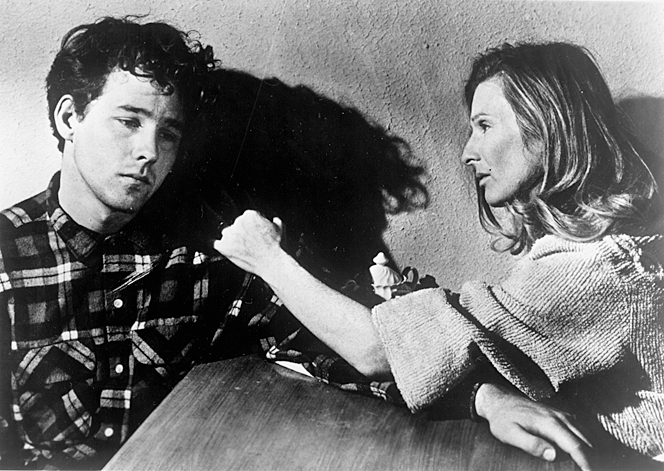 The melancholy of consolation.
The melancholy of consolation.Film Review Archive (date seen: September 14, 2010)
I have once read a list of controversial films on filmsite.org and I remember seeing "The Last Picture Show" on it. Although the film's main theme is mainly about innocence and bleak nostalgia in a barren town, it's very explicit in its portrayal of adolescent sexual exploration. But for me, to deliver a message, I think sometimes, one soul must cross the lines and brave through criticisms, and that's what director Peter Bogdanovich did.
For some reasons, "The Last Picture Show" reminds me of "Magnolia", both set in a melancholic place with its populace trapped than properly dwelling, merely grasping on existence than living. And for further effect of isolation, even us viewers are enclosed in the town, held in an emotional and cultural limbo for 2 hours (with a trip to Mexico reduced only to its aftermath). But in that running time, the town, although how empty and distant it was, had exposed its very heart and soul.
Though the film has a very impressive cast (a factor almost non-existent to teen films today), it's Timothy Bottoms who gave the most heartfelt performance, with his physical exterior seems always ready for mindless fun but deep inside consumed by sadness, desperation, and a clamor for escape.
The title of the film is an urgent allegorical elegy to the end of the adolescent stage, to the very town built and aged by memories, to the people that had the choice to escape but ultimately stayed, and to the old picture house that solely served as its dusty epitaph.
The wind blows, the marquee finally empty, some left without goodbye, but as time passes by, one of them may come back, linger and say, "I remember".
I have once read a list of controversial films on filmsite.org and I remember seeing "The Last Picture Show" on it. Although the film's main theme is mainly about innocence and bleak nostalgia in a barren town, it's very explicit in its portrayal of adolescent sexual exploration. But for me, to deliver a message, I think sometimes, one soul must cross the lines and brave through criticisms, and that's what director Peter Bogdanovich did.
For some reasons, "The Last Picture Show" reminds me of "Magnolia", both set in a melancholic place with its populace trapped than properly dwelling, merely grasping on existence than living. And for further effect of isolation, even us viewers are enclosed in the town, held in an emotional and cultural limbo for 2 hours (with a trip to Mexico reduced only to its aftermath). But in that running time, the town, although how empty and distant it was, had exposed its very heart and soul.
Though the film has a very impressive cast (a factor almost non-existent to teen films today), it's Timothy Bottoms who gave the most heartfelt performance, with his physical exterior seems always ready for mindless fun but deep inside consumed by sadness, desperation, and a clamor for escape.
The title of the film is an urgent allegorical elegy to the end of the adolescent stage, to the very town built and aged by memories, to the people that had the choice to escape but ultimately stayed, and to the old picture house that solely served as its dusty epitaph.
The wind blows, the marquee finally empty, some left without goodbye, but as time passes by, one of them may come back, linger and say, "I remember".











